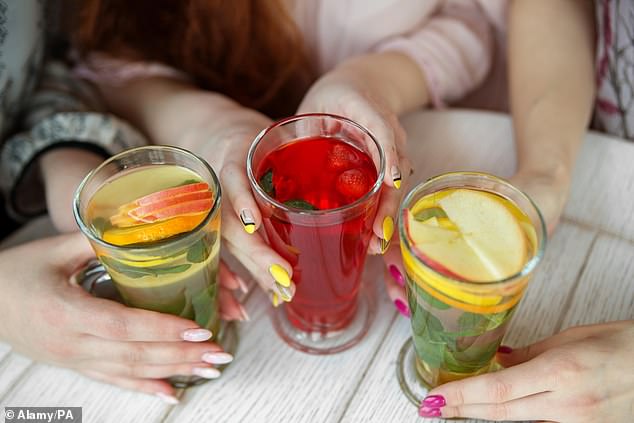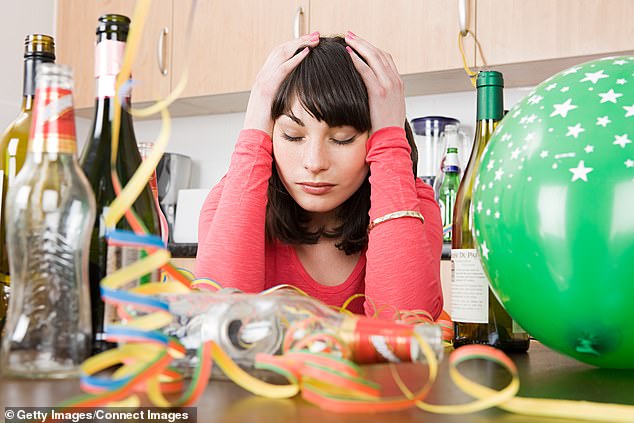Dry January is becoming a ‘fashionable practice’ and is increasingly being used as an excuse for dangerous drinking habits all year round, an expert warns
After one too many drinks last night, many will wake up this morning and swear off alcohol for the month.
But Dry January is becoming a ‘fashionable exercise’ and is increasingly being used as an excuse for dangerous drinking habits all year round, an expert has warned.
Dr. Niall Campbell, consultant psychiatrist at the Priory and one of Britain’s leading specialists in alcohol withdrawal, has issued an urgent warning about Britain’s drinking culture.
‘If you’re using Dry January as an excuse to drink too much in December, February and the rest of the year, you’re missing the point. We see that more and more,” he says.
‘Dry January is a fantastic initiative. It is very popular and the health benefits of completing it are significant.
‘But I’m afraid it has become a fashionable activity for many people. As a society we need a wake-up call.’
Alcohol causes record numbers of deaths in Britain, figures released in December show (file image)

Around 15.5 million people in Britain are expected to take part in Dry January this year (file image)
Around 15.5 million people in Britain are expected to take part in Dry January this year, the popular annual challenge where people abstain from alcohol for 31 days.
Yet alcohol is causing record numbers of deaths across Britain, figures released in December show, with more than 8,200 deaths expected by 2023 – a 42 per cent increase on 2019.
New figures released by Priory – an independent provider of addiction treatment services – confirm that alcohol remains by far the leading UK addiction.
In 2024, 59 percent of people who sought help through their addiction care sought help for alcohol abuse.
Dr. Campbell warned that the number of alcohol-related deaths could be even higher than the figures indicate.
“The official death numbers are startling, but they are just the tip of the iceberg,” he explained.
‘It is clear from my long clinical experience with alcoholics that the number of deaths caused by alcohol is much higher than the figures indicate.
‘Government statistics only cover a limited number of causes, mainly liver diseases.

January should be a time for everyone to reflect on their drinking habits and learn how to enjoy social events or relax at home without alcohol, an expert said (file image)
‘Many more people die from other alcohol-related causes, especially drunkenness leading to fatal accidents, withdrawal symptoms, heart attacks and strokes, even at a younger age.
‘Often autopsies are not carried out or alcohol is not identified as the cause of death in these circumstances.’
Although one in five people now classify themselves as non-drinkers, especially the younger generations, significant numbers of those who do drink alcohol do so harmfully, he added.
He said January should be a time for everyone to reflect on their drinking habits and learn to enjoy social events or relax at home without alcohol.
These lessons should continue for the rest of the year, he added.
